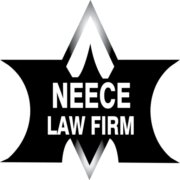Best Drunk Driving Lawyers in North Carolina
Share your needs with us, get contacted by law firms.
Free. Takes 2 min.
Or refine your search by selecting a city:
List of the best lawyers in North Carolina, United States
About Drunk Driving Law in North Carolina, United States
Drunk driving, also known as Driving While Impaired (DWI), is a serious criminal offense in North Carolina. The state maintains strict laws to deter individuals from operating motor vehicles under the influence of alcohol or drugs. Driving with a blood alcohol concentration (BAC) of 0.08 percent or higher is illegal for drivers aged 21 and above. For commercial drivers, the limit is 0.04 percent, while drivers under 21 face a zero-tolerance policy. Beyond criminal penalties, DWI convictions carry significant personal, financial, and legal consequences.
Why You May Need a Lawyer
Facing a drunken driving charge in North Carolina is daunting and can have lasting effects on a person's life. You may need a lawyer for several reasons:
- Your case involves complex circumstances, such as prior DWI convictions, high BAC levels, or the involvement of minors.
- You are unsure about your rights during and after your arrest, including issues related to sobriety testing.
- You are facing potential suspension or revocation of your driver’s license.
- You are concerned about the impact of a conviction on your employment, education, or insurance.
- You need guidance navigating court procedures and understanding potential defenses.
- You are considering plea bargains or alternative sentencing options, such as substance abuse treatment.
- You want to minimize penalties, such as jail time, fines, or mandatory ignition interlock devices.
An experienced lawyer can assess your case, protect your legal rights, represent you in court, and work toward the best possible outcome.
Local Laws Overview
North Carolina’s drunk driving laws are among the strictest in the country. Key aspects include:
- Legal BAC Limits: 0.08 percent for most drivers, 0.04 percent for commercial drivers, and 0.00 percent for anyone under 21.
- DWI Offenses: Include operating under the influence of alcohol, illegal drugs, or prescription medication that impairs driving ability.
- Zero-Tolerance for Underage Drivers: Anyone under 21 found with any amount of alcohol in their system will be charged with a DWI.
- Implied Consent Law: By driving in North Carolina, you imply consent to chemical testing for alcohol or drugs. Refusing a test leads to immediate license revocation.
- Sentencing Levels: The state employs a structured system, Level 1 being the most severe (often with factors like repeat offense or child passengers), down to Level 5 for less aggravated cases.
- Penalties: Range from probation, fines, community service, license suspension, mandatory treatment, to jail time. Enhanced penalties apply for habitual offenders and for cases involving serious injury or death.
Frequently Asked Questions
What happens if I am pulled over for suspected drunk driving in North Carolina?
Law enforcement may administer field sobriety tests and breathalyzers. If you are arrested, you may be taken to jail and your license could be revoked immediately if you refuse a chemical test.
What is the BAC limit for drivers in North Carolina?
The legal BAC limit is 0.08 percent for most drivers, 0.04 percent for commercial drivers, and 0.00 percent for drivers under 21 due to the zero-tolerance policy.
Will my license be suspended if I am charged with DWI?
Yes, North Carolina often imposes immediate civil license revocation, especially if you refuse testing or your BAC exceeds the legal limit. The length of suspension varies by circumstances.
Can I refuse a sobriety or breathalyzer test?
You can refuse, but doing so results in automatic license revocation and can be used as evidence against you in court. North Carolina’s implied consent law makes refusal a serious matter.
What penalties could I face if convicted of DWI?
Penalties can include fines, jail time, community service, probation, driver’s license suspension, mandatory substance abuse assessments, and installation of an ignition interlock device. Sentences depend on factors such as prior offenses and aggravating circumstances.
Are there enhanced penalties for multiple DWI convictions?
Yes, repeat offenders face harsher penalties, including longer jail sentences, higher fines, extended license suspension, and potential felony charges for habitual DWI.
Can a DWI conviction be expunged in North Carolina?
No, convictions for DWI generally cannot be expunged from your record, making it critical to handle your case carefully from the start.
What are aggravating and mitigating factors in a DWI case?
Aggravating factors, such as high BAC, reckless driving, or having minors in the car, can increase penalties. Mitigating factors, like a clean record, may reduce penalties. The court considers both in sentencing.
How long will a DWI stay on my record?
A DWI conviction remains on your criminal record permanently and on your driving record for at least seven years for sentencing purposes in subsequent offenses.
Should I get a lawyer if I am charged with DWI?
It is strongly recommended. A lawyer can protect your rights, challenge evidence, advocate for reduced penalties, and guide you through the legal process.
Additional Resources
If you need more information or help, consider these resources:
- North Carolina Department of Transportation (NCDOT): Information on license suspension and restoration processes.
- North Carolina Judicial Branch: Details on court procedures and DWI court programs.
- North Carolina Department of Health and Human Services (NCDHHS): Provides substance abuse assessment provider listings.
- North Carolina Governor’s Highway Safety Program: Resources on impaired driving prevention and statistics.
- Local legal aid organizations: Assistance for those who cannot afford private counsel.
Next Steps
If you have been charged with drunk driving in North Carolina, it is important to act quickly:
- Write down everything you remember about the incident, including interactions with law enforcement and the sequence of events.
- Do not discuss your case with others or post about it on social media.
- Contact an experienced DWI attorney who practices in North Carolina as soon as possible. Bring all relevant documents, such as arrest records and court papers, to your consultation.
- Follow all legal requirements, including attending court dates, completing assessments, and complying with any pretrial conditions.
- Educate yourself on available resources and support systems for substance abuse treatment if recommended or required by the court.
Prompt action, professional legal support, and informed decision-making are crucial for protecting your rights and obtaining the best possible result in your case.
Lawzana helps you find the best lawyers and law firms in North Carolina through a curated and pre-screened list of qualified legal professionals. Our platform offers rankings and detailed profiles of attorneys and law firms, allowing you to compare based on practice areas, including Drunk Driving, experience, and client feedback.
Each profile includes a description of the firm's areas of practice, client reviews, team members and partners, year of establishment, spoken languages, office locations, contact information, social media presence, and any published articles or resources. Most firms on our platform speak English and are experienced in both local and international legal matters.
Get a quote from top-rated law firms in North Carolina, United States — quickly, securely, and without unnecessary hassle.
Disclaimer:
The information provided on this page is for general informational purposes only and does not constitute legal advice. While we strive to ensure the accuracy and relevance of the content, legal information may change over time, and interpretations of the law can vary. You should always consult with a qualified legal professional for advice specific to your situation.
We disclaim all liability for actions taken or not taken based on the content of this page. If you believe any information is incorrect or outdated, please contact us, and we will review and update it where appropriate.
Browse drunk driving law firms by city in North Carolina
Refine your search by selecting a city.















